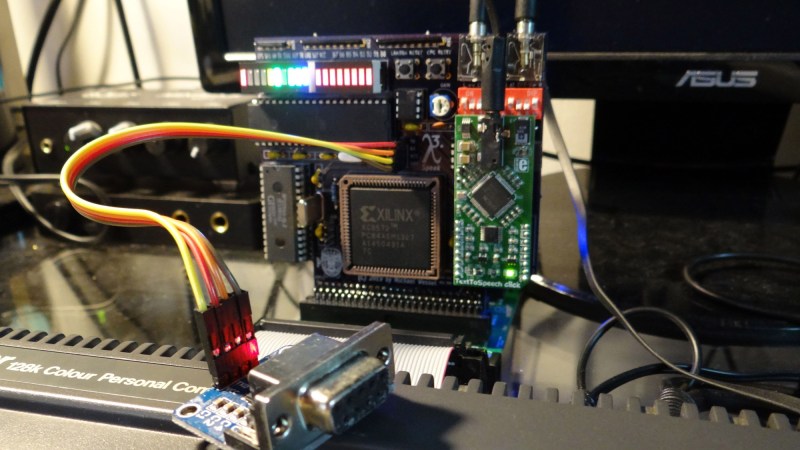Back in the ’80s, home computers weren’t capable of much in terms of audio or multimedia as a whole. Arguably, it wasn’t until the advent of 16-bit computers such as the Amiga that musicians could make soundtrack-quality music without having to plug actual studio gear up to their machines. [Michael Wessel] is trying to bring some of that and many more features to the Amstrad CPC with his ambitious LambdaSpeak 3 project, an expansion card built completely up from scratch and jam-packed with features.
First, and likely giving it its name, is the speech synthesizer. [Michael] has made an emulation mode where his card can act just like the original SSA-1 expansion, being able to be controlled by the same software as back then. By default, the card offers this mode with an Epson S1V30120 daughterboard (which is based on DECTalk synthesis), however for further authenticity you also have the option of fitting it with an SP0256-AL2 chip, the same one used in the original Amstrad hardware in 1985.
As for the more musical part of the project, the board supports 4-channel PCM playback, much like the Amiga’s sound offering. This can be used for a drum machine sequencer program, and it has an Amdrum mode, emulating another expansion from the original Amstrad days. Sample playback can also be used alongside the speech synthesis as shown here, with random allophone beats that wouldn’t sound out of place in a Kraftwerk recording. Finally, by using the UART interface included on the LambdaSpeak, you can also turn the CPC itself into a synth by giving it MIDI in/out and interfacing a controller in real time with the computer’s AY-3-8912 sound chip.
If you like modern expansions giving old computers new life, did you know that you can get just about any retro computer online, perhaps a TRS-80, an Amiga and even a Psion Organizer? And if you’re interested in just using old systems’ sound chips with modern USB MIDI controllers, it’s easy to make a microcontroller do all the heavy lifting.
















Very very cool project! I spent years of my youth on this computer. Good to see some talented people still rocking the beat out of it :)
An SP0256 (not SPO256) was never a part of Amstrad hardware.
“SPO256-AL2” seems to be a common misspelling around the internet, thanks for spotting it, I’ve fixed it. And it is part of Amstrad’s SSA-1 expansion, which is what I was referring to. :)
Umms, seems I am guilty of misspelling the SPO256 um SP0256-AL2 as well :-D Thanks for noticing!!
Not in the base CPC, but it was the chip used in Amstrad’s SSA-1 speech synthesizer module.
http://www.cpcwiki.eu/index.php/Amstrad_SSA-1_Speech_Synthesizer
I remember using the printer port of a CPC-6128 and making a project on veroboard with a SP0256.
Myself and my friends were amused to hear the american accent.
Can SSA1 used on a CPC 6128 using the printer’s port? Considering we can load the software via Gotek…